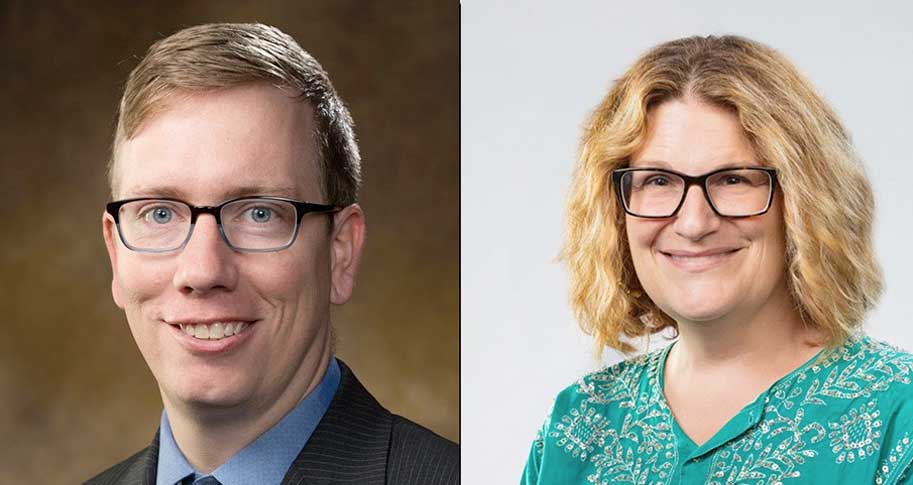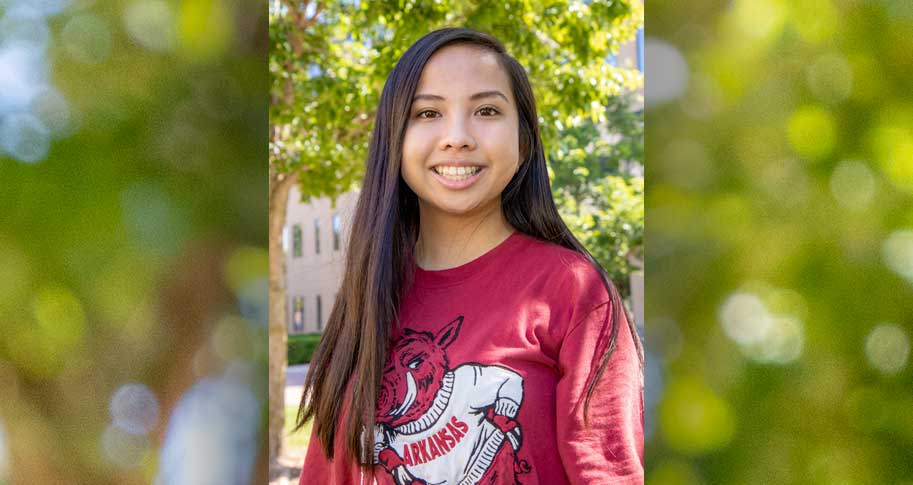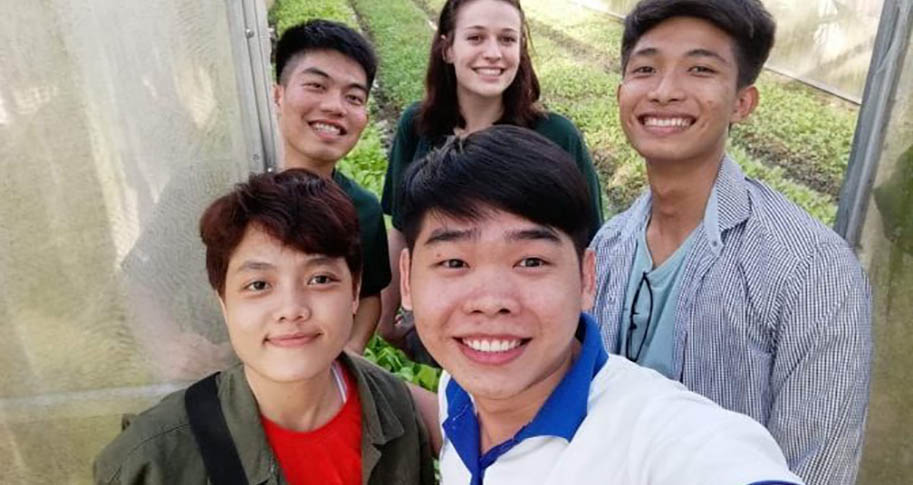
Vietnam, a long, skinny country, borders the South China Sea, China, Laos and Cambodia. Rural Vietnamese farmers have long relied on self-sustaining farming and fishing. Historically, it is known for rice production, although in more recent years it is expanding its exports to cashews, black pepper and coffee.
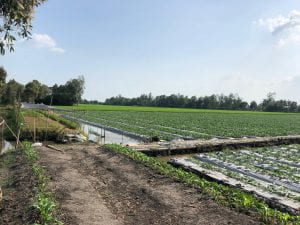
Rising seas and water wars by neighboring countries threaten the low-lying nation’s agriculture with less land and water for its traditional rice crops.
How are rural farmers and families to cope?
Steve Kopp, associate professor in the Department of Marketing, has been taking teams of students to Vietnam since 2015 to study the business, culture, environment and economics of rural Vietnamese farmers in the southwestern tip of the country to learn and shape their business practices.
Most of all, the experience shapes Walton College students’ view of how businesses work on a global scale. “It’s not just the trip. It’s not just the tour or a mission trip,” Kopp said. “Students come back changed.”
Each year during winter break, Kopp takes a team of 10-14 students to Hoa An, a rural area of southwest Vietnam. He partners with the College of Rural Development from Can Tho University, which is located in the southern tip of the country. The student team also works with Peaceworks, a socially conscious educational student travel program, which assists with tours, housing and travel arrangements.
The trip intertwines culture, business techniques, surveys and field research, and, well, people. Each student must have a valid passport and a visa. Before leaving, students learn how to eat with chopsticks, research the country and study how to conduct field research and surveys.
Upon arrival in Ho Chi Minh City, the team travels to Can Tho University accompanied by Vietnamese students who serve as translators and liaisons.
“They live with us, travel with us … they keep us out of trouble,” Kopp said. “The relationships our students make with the Vietnamese students sets us apart.”
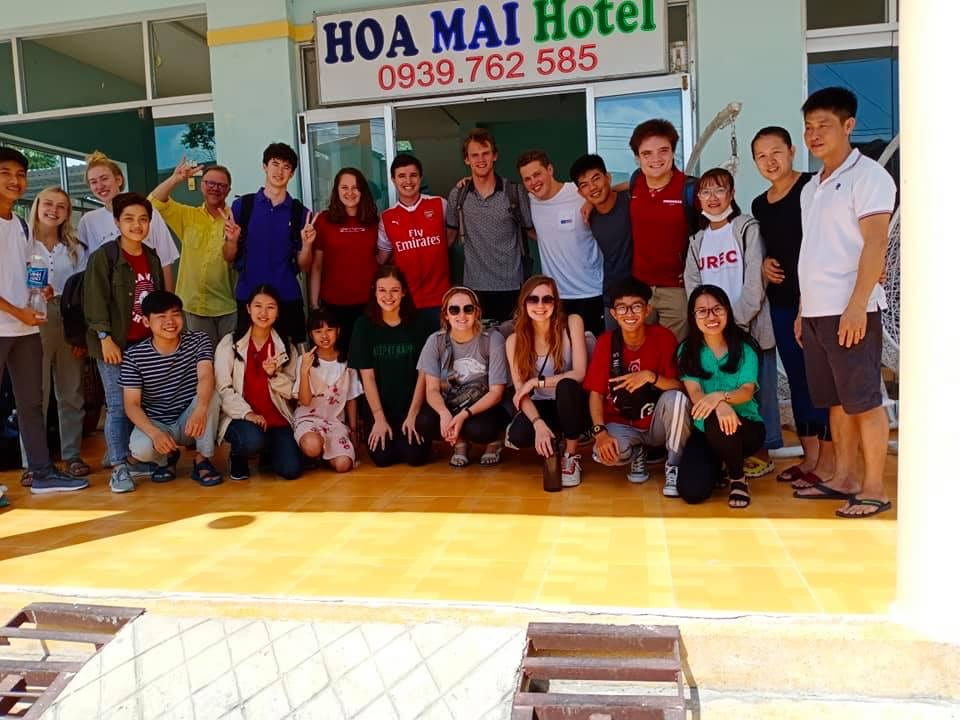
Students stay in hotels near the university for the first part of the trip. They are introduced to a new cuisine consisting of a lot of rice, noodles, seafood and fruits; housing with thin mattresses and questionable air conditioning and hot water; and their Vietnamese counterparts.
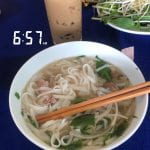
“We had a similar food structure for every meal, but it never felt like we were eating the same thing over and over again,” said Gabrielle “Gaby” Byrne, a 2021 senior majoring in marketing. “For instance, each meal had rice, some type of soup or broth, two types of meat, one usually being fish, and at lunch usually some type of spring roll. Another thing I found interesting about the food was we ate every meal family style which was very different from American culture where we each have our own meal.”
Soon Byrne and her teammates traveled to Hoa An and prepared for the physical project of creating a “nethouse” for gardens, a greenhouse-like structure using netting. Pesticides are not needed with the nethouse.
“This allows all the good things in — sunshine, rain, CO2 — but keeps the bad things out: bugs,” Kopp said.
Kopp’s student group put netting on frames for six nethouses. They also prepared the soil and planted seeds.
“The academic component of this was for the students to do some research on this nethouse concept and how it is now being used in many developing economies; it’s relatively inexpensive but cannot be applied in some situations,” Kopp said.
“The nethouse activity dovetailed very well with our field survey data collection. The village where we worked was constructing these nethouses with the intention of creating an agricultural cooperative this year, meaning that the farmers would collectively produce these vegetables using the same methods and calendar, and would be able to offer their ‘brand’ of vegetables as ‘clean.’ We had three student teams (with Arkansas and Can Tho University students) that interviewed farmers about the new cooperative – this was important work, because many of the farmers did not know exactly how the cooperative was going to work, and this provided the managers with some insight.”
Using the nethouses, farmers are able to diversify crops and create organic products that elevate the farmers’ brand and consumer reach.
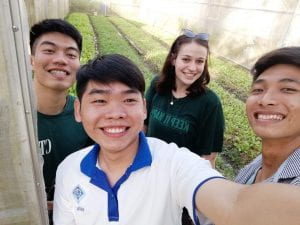
“We have worked with cooperatives four times now – lime, rice, pineapple, and now the vegetables – using this field research methodology. The information has been helpful to the cooperative managers, to the agricultural extension people (government), and to the university researchers,” Kopp said. “This of course is in addition to the shared experiences of the Arkansas and the Vietnamese students.”
An important part of the study abroad experience was getting to know the Vietnamese students who served as translators and volunteers. Walton students learned about Vietnamese culture through the volunteer students, the farmers and their families.
“My favorite part of the trip was working with our student volunteers from Can Tho University,” Byrne said. “We had six students travel and work on the surveys with us. We got to be such good friends with them, from eating dinner together and hanging out after our nightly meetings. We bonded as a group and I plan to stay in touch with all of them.”
After arriving to Hoa An, the students surveyed residents regarding their co-op, farming techniques and overall needs with nethousing.
“I would definitely recommend this program to other students. Although it was a service-learning program – meaning it was a lot of hard work – we gained so much experience from building net-houses, creating surveys, conducting surveys through translators and creating and giving a presentation to the university,” Byrne said. “I would recommend this program to other students because you gain so many irreplaceable experiences that you can’t get on other study abroad programs.
“I think this trip advanced my academic and professional career through the challenge of a language barrier. I have never worked with a translator before, but our Vietnamese student volunteers translated to the farmers during our surveys and they translated during our presentation at Can Tho University. This was a new experience since certain words and phrases didn’t translate correctly, I had to pay more attention to word choice and phrasing, which was excellent preparation for future presentations.”
“This program affected me personally because I made such great friends from Can Tho University, who I plan to stay in touch with as well as creating close friendships with students here at the University of Arkansas who I didn’t know before the program.”
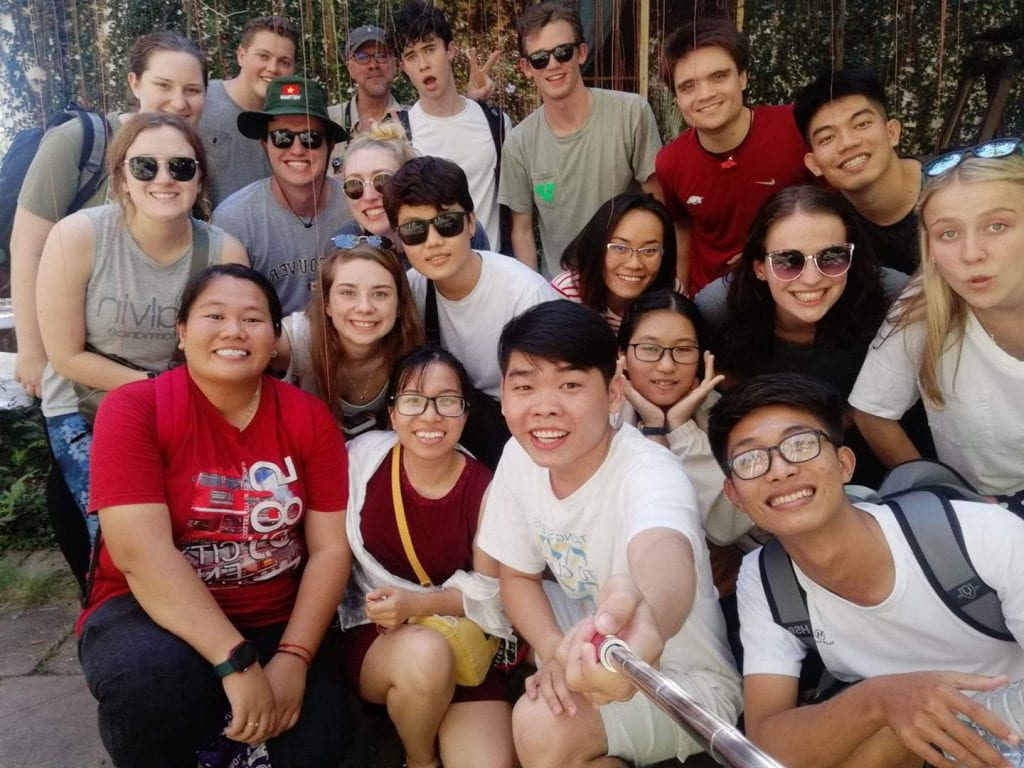
To keep our students and faculty safe and healthy, current study abroad trips have been cancelled due to COVID-19. Learn more about the Walton College Global Engagement Office and its study abroad programs.

